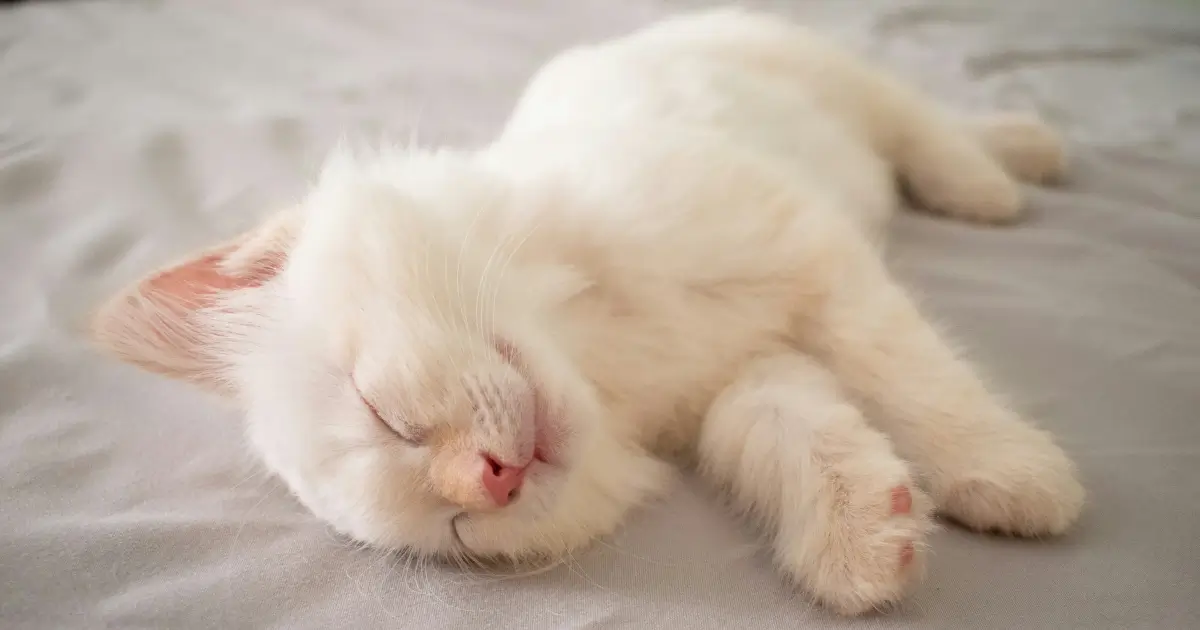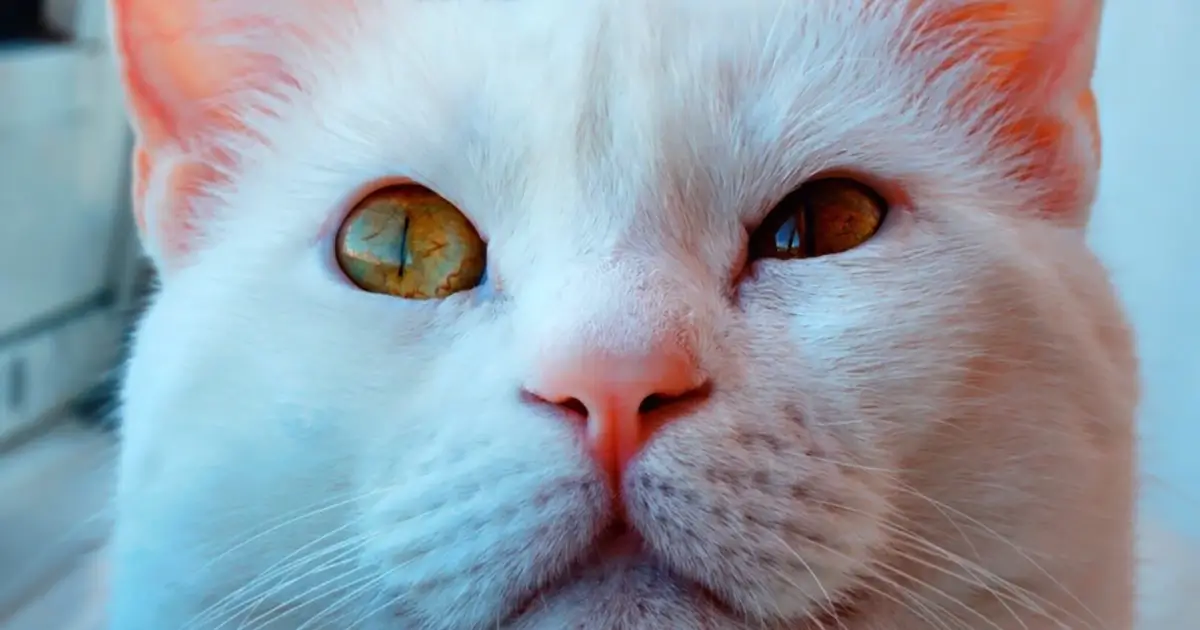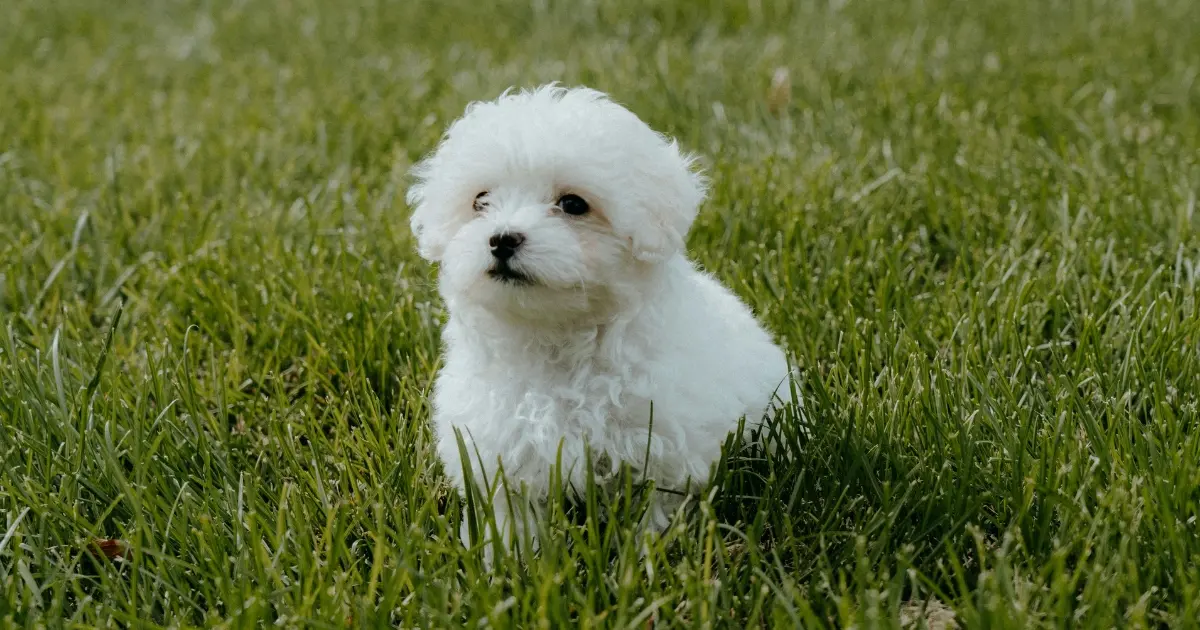Ever wondered why do cats Scream When Mating ? cats and mating is a natural process. It includes unique vocalizations, like the screaming cats make during mating. These sounds are a normal part of their reproductive behavior.
Understanding these vocalizations helps cat owners appreciate their pets’ natural instincts. The screaming is not a cause for concern. It’s a sign that cats are showing their natural behavior.
Table of Contents
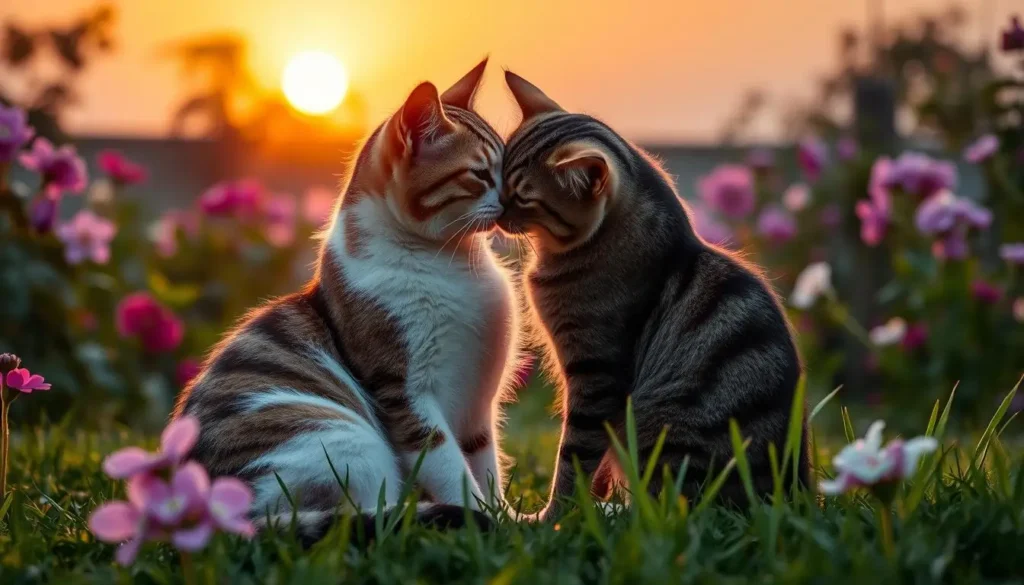
The topic of cat mating is fascinating. By looking into the reasons behind the screaming sounds, we can understand the complex behaviors involved. This knowledge helps cat owners provide a supportive environment for their pets during the mating season.
Understanding Cat Mating Vocalizations
Cat mating vocalizations are a complex series of sounds cats make during mating. These sounds can range from soft meows to loud, piercing screams. Cat in heat sounds show a cat’s reproductive status and signal to potential mates. Male cats, in particular, make loud and persistent male cat in heat sounds that can be heard far away.
Females make loud, noisy cat in heat sounds to attract mates. These sounds can be heard by cats from other neighborhoods. Cats also use hisses, growls, and purrs to communicate during mating.
Types of Mating Calls
- Short, high-pitched meows
- Loud, piercing screams
- Low, rumbling growls
- Soft, chirping sounds
Understanding cat mating vocalizations helps cat owners appreciate cat reproduction’s complex social dynamics. Whether it’s the loud male cat in heat sounds or the soft, chirping sounds of a female in heat, each sound is crucial in the mating process.
The Biological Purpose of Cat Mating Screams
Cat mating screams are key for cats to talk to each other. They show when a cat is ready to mate, draw in other cats, and show who’s boss. When why do cats cry while mating, it’s their natural urge to have kittens. This urge comes from their long history of using sounds to find mates.
Cats screaming during mating is not random. It helps them find each other. Female cats usually start by making sounds to show they’re ready. The cats screaming also warns other males to stay away, avoiding fights and injuries.
In the wild, making sounds to find a mate is vital for survival. Cats in heat can be heard far away, helping them find a partner. This skill has been passed down through generations. Knowing why do cats cry while mating helps cat owners understand their pets better and manage their behavior during mating season.
Some key points to consider about cat mating screams include:
- Vocalizations serve as a primary means of communication between cats
- Cats screaming during mating is a natural behavior rooted in evolution
- The screams can attract potential mates and establish dominance
Female Cats in Heat: The Estrus Cycle
Female cats in heat show clear signs like more meowing and restlessness. Knowing about the estrus cycle is key for cat owners. They often growl at each other, showing aggression and territorial behavior.
The estrus cycle lasts about 4-7 days, happening every 2-3 weeks. Female cats show signs like:
- Increased vocalization, including meowing and yowling
- Rubbing against objects or people
- Lifting their tail to display their reproductive organs
- Aggression towards other female cats, such as female cats growling at each other
Recognizing these signs helps cat owners know when a cat is in heat. This knowledge helps manage their cat’s behavior and prevent unwanted breeding.
Knowing about the estrus cycle and its signs helps cat owners care for their pets during this important time.
Why Do Cats Scream When Mating: The Scientific Explanation
Cats scream during mating due to hormonal changes and physical sensations. The process of how do cats have sex is complex. It involves behaviors that can be loud and intense. Female cats in heat often vocalize to attract males, and males respond with their own sounds.
The screaming is caused by the male cat’s penis, with small spines that hurt the female. This pain makes the female cat scream or make loud noises. Knowing why do cats scream when mating helps us understand cat reproduction better.
Some people think cats scream only because of pain or discomfort. But research shows screaming is also due to the intense emotional and physical experience of mating. By learning about the science behind why do cats scream when mating, we can better appreciate our pets’ complex behaviors.
- Hormonal changes play a significant role in cat mating behavior
- Physical sensations, including pain, can contribute to the screaming sound
- Understanding the biological and physiological processes involved in cat reproduction can help cat owners appreciate the complexity of cat mating behavior
By knowing what causes cat screaming during mating, we can make our pets’ mating experience less stressful. We can provide a safe and comfortable place for them to mate. And if needed, we can seek veterinary care. By understanding how do cats have sex and related behaviors, we can help our pets have healthy and happy relationships.
The Physical Process of Cat Mating
When it comes to how do cats have intercourse, it’s a complex process. It’s a natural instinct that helps cats reproduce. When a male and female cat are in heat, they naturally want to mate.
The mating process starts with initial contact and courtship. The male and female cats interact and check if they’re a good match. They may meow or purr to talk to each other during this time.
Initial Contact and Courtship
The first meeting between the male and female cats is key. The male cat will approach and show affection, like rubbing against her. The female cat will show she’s ready by lifting her tail or crouching.
The Mating Act
The actual mating act is quick, lasting just a few seconds. The male cat mounts the female and ejaculates, which can fertilize her eggs. Afterward, they separate, and the female cat may start ovulating and possibly get pregnant.
Post-Mating Behavior
After mating, the cats may groom or rest together. The female cat will start to show signs of pregnancy, like gaining weight. Knowing how cats mate is important for cat owners and breeders to care for their cats’ health and well-being.
Male Cat Behavior During Mating Season
When a male cat senses a female cat for mating, his behavior changes a lot. He starts making male cat in heat sounds, which are loud and constant meows. These sounds help him attract the female.
Male cats also do territorial marking, like spraying urine or scratching surfaces. This is to show they are dominant and to attract females. This behavior is more common during mating season, as males compete for mates.
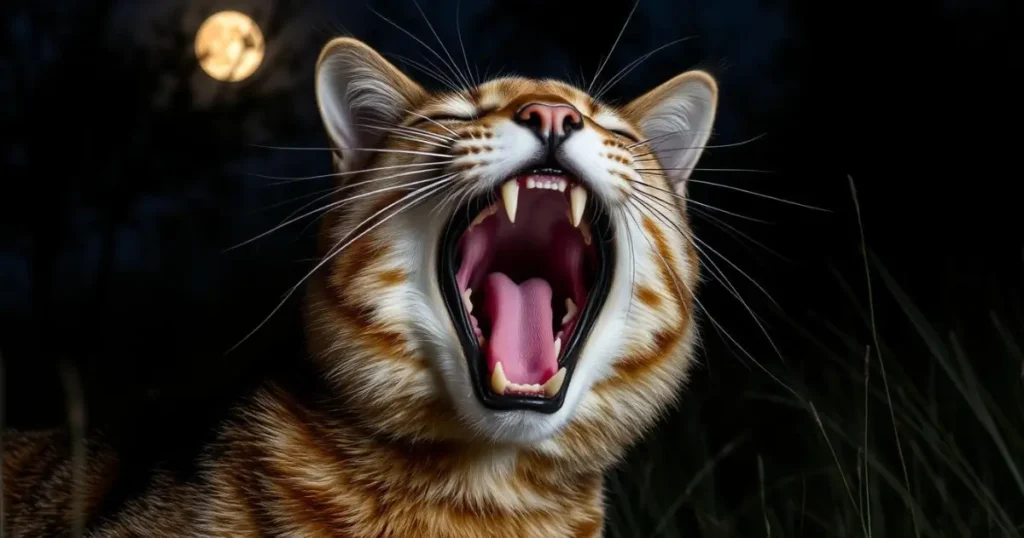
Some key characteristics of male cat behavior during mating season include:
- Increased vocalization, including loud meowing and yowling
- Territorial marking behaviors, such as spraying urine or scratching surfaces
- Restlessness and agitation, as the male cat searches for a mate
- Increased competition with other males for mating opportunities
By understanding these behaviors, cat owners can better manage their male cat’s behavior during mating season. This can help prevent unwanted breeding or conflict with other cats.
Cat owners should be aware of the signs of mating season in their male cats, including male cat in heat sounds and territorial marking behaviors. They should take steps to manage their cat’s behavior and prevent unwanted breeding.
How Female Cats React After Mating
Female cats show unique behaviors after mating. These signs can tell us if they’ve mated successfully. Watching videos of cats mating helps us understand their body language and behavior.
Right after mating, female cats might roll around and meow a lot. Later, they could become more loving or sometimes more aggressive. These changes are important signs of their reproductive status.
- Changes in appetite or eating habits
- Increased sleeping or resting
- Reduced interest in mating or social interactions
These signs can differ from cat to cat and depend on their health. By watching their behavior and videos of mating, owners can meet their cat’s needs better.
Knowing how female cats react after mating is key for good pet care. Recognizing mating signs and giving proper care helps cats stay healthy and strengthens the bond between them and their owners.
Managing Cat Mating Behavior for Pet Owners
As a cat owner, it’s key to know why cats make weird noises like a baby crying, mainly during mating season. These sounds can be scary, but there are ways to handle your cat’s behavior. One method is to give them a stimulating environment with toys and scratching posts to distract them from mating instincts.
When dealing with cats in heat, it’s important to know when to keep them apart to stop unwanted mating. This can be tough, mainly if you have many cats at home. But, keeping them apart can lower stress and stop unwanted litters. Getting professional help, like spaying and neutering, can also manage cat mating behavior well.
Reducing Excessive Noise
- Provide a quiet and comfortable space for your cat to relax
- Use white noise machines or calming music to reduce stress
- Avoid punishing or scolding your cat for making noise, as this can make the behavior worse
Professional Intervention Options
Talking to a vet or animal behaviorist can give you great advice on managing your cat’s mating behavior. They can help with spaying and neutering and suggest other professional options. By being proactive, you can lessen your cat’s stress and anxiety, making your home more peaceful.
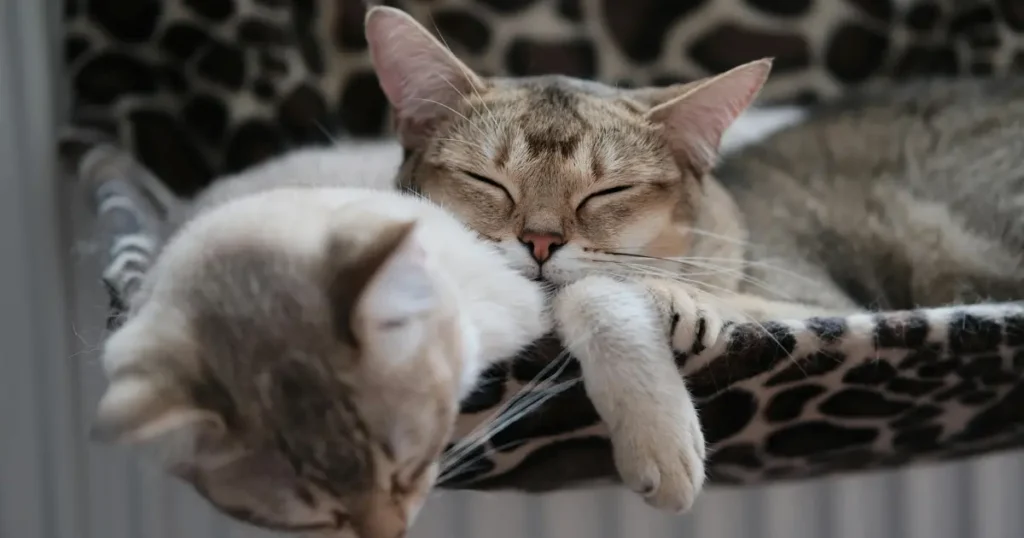
Health Considerations During Cat Mating Season
Health is key during cat mating. It’s important for both male and female cats. Regular veterinary check-ups can spot health issues early. A snowshoe cat’s meow can show its health and mood, so knowing what’s normal is crucial.
Disease transmission is another big worry. This risk is higher if a cat already has health problems. Keeping both cats up-to-date on shots and disease tests is vital.
Some cats, like snowshoe cats, need extra care during mating. Their unique sounds can mean different things. It’s important to keep both cats safe and healthy during mating. This way, the process can be successful and safe for all.
- Regular veterinary check-ups
- Vaccinations and disease testing
- Monitoring for signs of illness or injury
By following these steps and knowing each breed’s needs, owners can reduce risks. This ensures a healthy and successful mating experience for both cats.
Conclusion: Understanding Your Cat’s Natural Instincts
Cats make loud sounds when they mate because it’s part of their natural behavior. These sounds help them find mates and show they’re ready to breed. Knowing why cats scream during mating is key to taking good care of them.
The loud mating rituals might be annoying, but they’re just what cats do. By understanding why they make these sounds, we can help them feel more comfortable. This might mean giving them a quiet place or keeping them apart during heat cycles.
By getting why cats make these sounds, we can take better care of them. We can create a peaceful home for them. This way, we support their health and happiness, not just during mating season but all the time.
FAQ
Why do cats scream when mating?
Cats scream or yowl during mating as a natural part of their reproductive behavior. These vocalizations attract potential mates, signal readiness, and communicate during mating. The intense sounds come from hormonal changes and physical sensations in both male and female cats.
What do the different mating calls of cats sound like?
Cats make various sounds during mating, like howls, yowls, and screams. Male cats usually make low-pitched yowls, while females scream high-pitched, almost human-like sounds. The volume and intensity change based on the mating stage and cat’s arousal.
How do the mating vocalizations of male and female cats differ?
Male and female cats have unique mating calls. Males make low-pitched yowls to attract females and signal their presence. Females produce high-pitched screams or howls, showing they’re ready to mate and may deter other females.
What is the biological purpose of cat mating screams?
Cat mating screams are a form of communication crucial for reproduction. They help attract mates, signal readiness, and establish dominance. The intense sounds come from hormonal changes and physical sensations in both sexes.
What are the signs that a female cat is in heat?
Signs of a female cat in heat include increased vocalization, restlessness, and affection-seeking. They may also show aggression towards other females. A lordosis posture, where they raise their hindquarters, is another sign.
How does the physical process of cat mating work?
Cat mating starts with initial contact and courtship, like rubbing and chasing. During mating, the male grips the female’s neck with his teeth. The female assumes a lordosis posture for intromission. After, she may roll, vocalize, and groom herself.
How do male cats behave during mating season?
In mating season, male cats vocalize loudly, mark territories, and become aggressive. They roam widely to find females, leading to more vocalizations and scuffles.
How do female cats react after mating?
After mating, female cats may roll, vocalize, and groom aggressively. They may also show behavioral changes like increased affection-seeking and aggression towards other females. A refusal to mate with additional males is a sign of successful mating.
How can pet owners manage cat mating behavior?
Pet owners can manage mating behavior by reducing noise and separating cats during peak seasons. They can also consider spaying and neutering. Understanding cat mating instincts and consulting veterinarians is key to maintaining their reproductive health.


